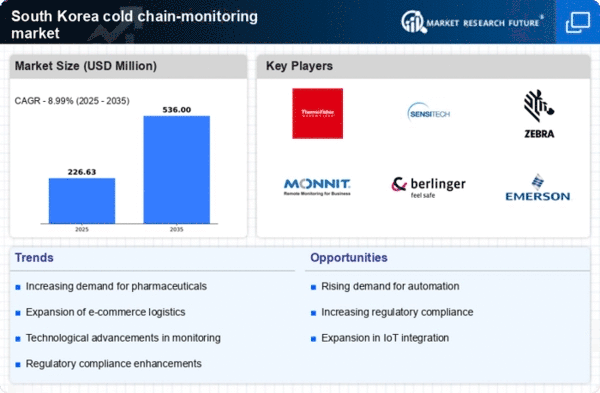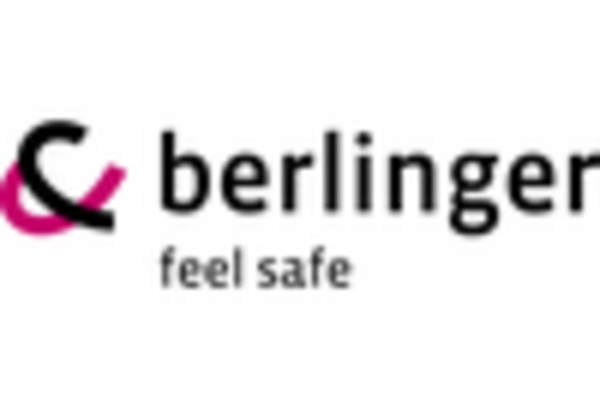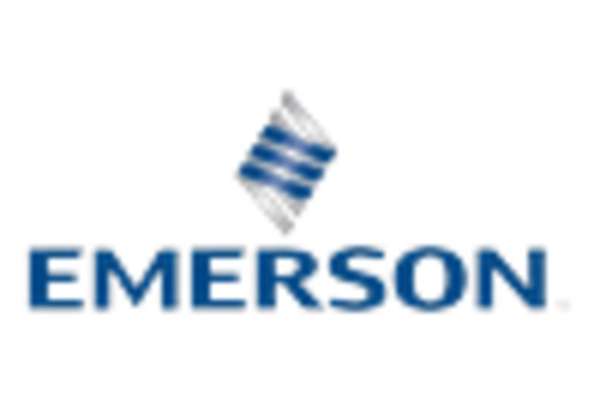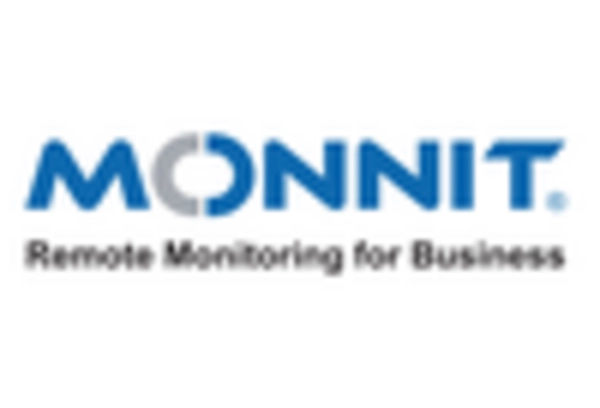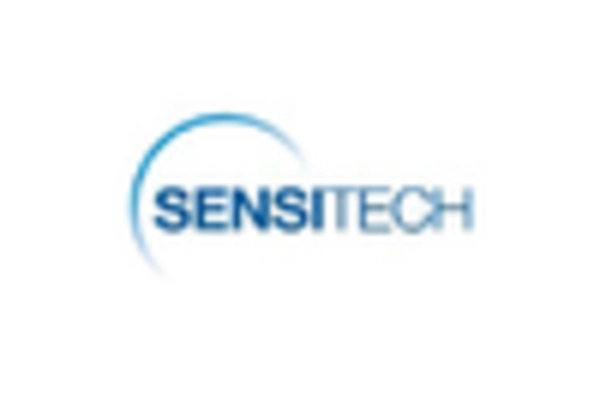Government Initiatives and Support
The South Korean government actively promotes the development of the cold chain-monitoring market through various initiatives and support programs. Recognizing the importance of food safety and quality, the government has implemented regulations that encourage businesses to adopt advanced monitoring technologies. For instance, the Ministry of Food and Drug Safety has established guidelines for temperature control in food transportation, which has led to increased compliance among companies. Additionally, government funding and incentives for technology adoption are likely to stimulate growth in the cold chain-monitoring market. As businesses align with these regulations and leverage government support, the market is expected to expand, fostering innovation and enhancing overall efficiency in the supply chain.
Rising Demand for Perishable Goods
The increasing consumption of perishable goods in South Korea is a primary driver for the cold chain-monitoring market. As consumers become more health-conscious, the demand for fresh produce, dairy products, and meat has surged. This trend is reflected in the food retail sector, where the market for fresh food is projected to grow at a CAGR of approximately 5.5% over the next few years. Consequently, businesses are investing in advanced cold chain solutions to ensure the quality and safety of these products. The cold chain-monitoring market is thus positioned to benefit from this rising demand, as effective monitoring systems are essential for maintaining optimal temperature and humidity levels during transportation and storage. This ensures that perishable goods reach consumers in peak condition, thereby enhancing customer satisfaction and loyalty.
Growth of the Pharmaceutical Sector
The pharmaceutical sector in South Korea is experiencing rapid growth, which is significantly impacting the cold chain-monitoring market. With the increasing production and distribution of temperature-sensitive medications and vaccines, the need for reliable cold chain solutions has become paramount. The pharmaceutical market is projected to reach $30 billion by 2027, with a substantial portion of this growth attributed to biologics and specialty drugs that require stringent temperature controls. Consequently, pharmaceutical companies are investing heavily in cold chain monitoring systems to ensure compliance with regulatory standards and maintain product integrity. This trend not only drives demand for advanced monitoring technologies but also positions the cold chain-monitoring market as a critical component in the healthcare supply chain.
Technological Advancements in Monitoring Solutions
Technological innovations are significantly influencing the cold chain-monitoring market. The integration of IoT devices, sensors, and real-time tracking systems has revolutionized how temperature-sensitive products are monitored. In South Korea, the adoption of smart technologies is on the rise, with the market for IoT in logistics expected to reach $1.2 billion by 2026. These advancements allow for continuous monitoring of temperature and humidity levels, providing businesses with actionable insights to prevent spoilage and ensure compliance with safety standards. Furthermore, the ability to collect and analyze data in real-time enhances operational efficiency and reduces costs associated with product loss. As companies increasingly recognize the value of these technologies, the cold chain-monitoring market is likely to experience robust growth.
Evolving Consumer Preferences for Quality Assurance
Consumer preferences in South Korea are shifting towards quality assurance and transparency in food sourcing. This trend is driving the cold chain-monitoring market as consumers demand more information about the handling and storage conditions of their food. The rise of e-commerce and online grocery shopping has further amplified this demand, as consumers expect their perishable goods to arrive in optimal condition. According to recent surveys, approximately 70% of consumers are willing to pay a premium for products that guarantee freshness and quality. As a result, businesses are compelled to invest in advanced cold chain monitoring solutions to meet these expectations. This focus on quality assurance not only enhances consumer trust but also positions companies favorably in a competitive market.

